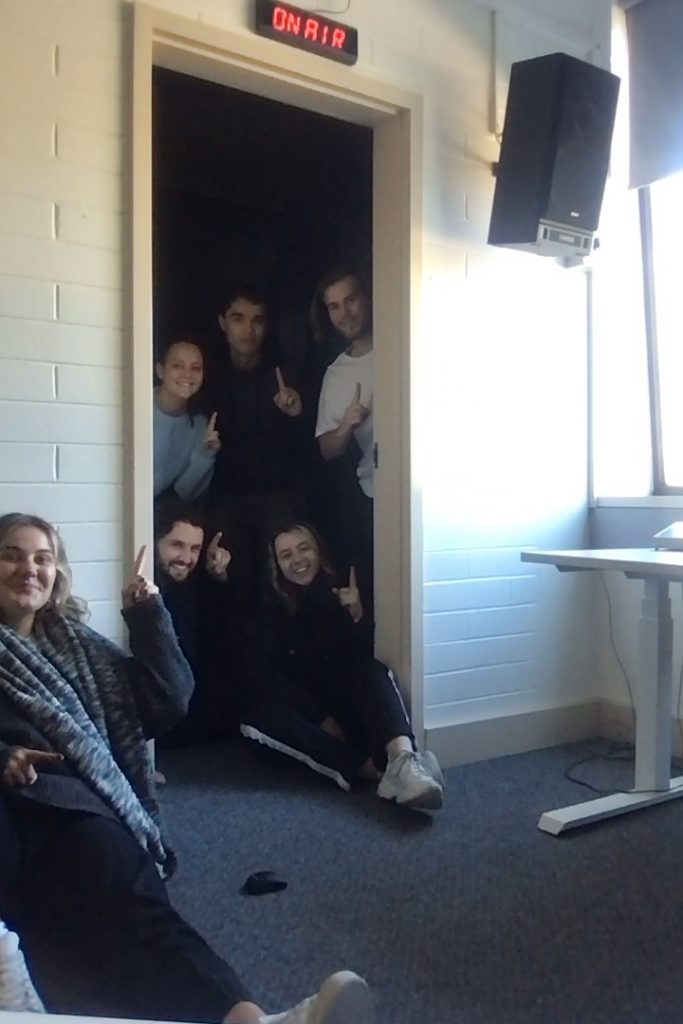mindDog Benefits
Mental illness impacts the lives of many people, and sometimes it’s not obvious that someone is living with a mental illness. With over 600 clients in Australia, mindDog is helping everyday people live their best life. mindDog helps people find, train and certify psychiatric assistance dogs for those in need.
Any breed of dog can become a mindDog because mental illness can present themselves so differently in individuals so different people will benefit from different breeds are able to do. Some people benefit from having a smaller dog that they can hold, while others benefit from having a large dog that they can hug. The different reasons handlers will choose a certain breed are endless.
I sat down with the handler, Mel Hawkes, to discuss how her mindDog, Bonnie, has helped her and how she thinks the community would benefit from knowing more about assistance dogs.
Q. When did you realise that you would benefit from having a mindDog?
A: So in 2015, there were some things that occurred in the family and my mental health just slowly declined. There wasn’t one event, but over time I became housebound and had to stop working.
At which point I decided, I got help from regular counselling and I go see the GP for medication, but I wasn’t leaving the house without Bonnie. I was only going places that I could take her already, so I was only going to like pet shops and parks, and I realised that I felt more comfortable with her around.
At which point I decided to train her up and kind of use that to help me regain some independence, long term I’m planning to be able to get back into employment. It was that kind of “Oh this is really helping”, that encouraged me to go do that.
I noticed that when I adopted her, a significant difference in how happy I felt having her around. Just things like having to get up and go take her for a walk, that alone really helped with my happiness because I was getting outside and I was exercising. So then I was like, “how can I kind of take this further and use that to help me live a kind of more normal life?”
Q. So what kind of extra training did you have to do?
A: MindDogs have to pass a public access test, so they have to meet a certain standard of obedience. So things like they have to be able to walk well on the lead, be okay with all different sounds and surfaces to walk on, and places and not be scared.
I did a lot of that general obedience training. It was training for me as well, it was learning how to teach a dog this kind of things so I learnt quite a lot, and that got me out and about. I started doing some work on teaching her to do something called grounding.
It has been getting my attention back off my environment and anything that’s overwhelming me; which keeps me present and stops me from panicking and overthinking. She kind of picked that up almost automatically, she learnt how to get my attention or when I wasn’t paying attention to her.
Say when I’m grocery shopping I find the noises and people around me are so overwhelming and distracting and I can’t do my task; giving me a panic attack. So for her being there forces my attention to be on her, rather than what’s around me. Even like her shifting her weight you kind of look down like “oh what are you doing?” and that stops you from being everywhere else and keeps me from overthinking and having a panic attack.
She got used to lots of loud noises, she’s not scared of children, and I can take her into the movie theatres and things without her getting scared of any of the noises in the movie. We do that with positive reinforcement, so exposing them really slowly at a level that they’re comfortable with and the associating it with a treat that’s happy.
Q. So Bonnie helps by keeping you grounded?
A: Yeah so that’s one of her tasks, the other way she helps is if I do have a panic attack she’s trained in what’s called deep pressure therapy. So what she’ll do is basically drop over the top of my legs or across my stomach. It works the same way as a weighted blanket, so again it grounds you and forces you to be in the present and it has a natural calming effect, sits on me for a lack of better term. So they’re her two kinds of roles, the grounding is probably the most key thing, just having her there every day keeps me functioning. I’ve learnt to if I’m over thinking I concentrate on her breathing or I’ll play with her ears or things like that.
Q. Have you had any troubles with not understanding that Bonnie is an assistance dog?
A: Yes. We find 90% of people are wonderful and really good, its the 10% of people that are uneducated that cause issues. I’ve had a couple of times where I’ve gone to go into cafes where they’ve asked me to leave.
I’ve had to explain the situation, normally once you explain that she’s an assistance dog, that she has all the rights of like say a Guide Dog, she can access any public place, there normally pretty welcoming. It generally just comes down to lack of education. Most of the time everyone is very friendly.
Q. How do you think would be a good way to increase the awareness of Mind Dogs?
A: I think generally the education, even just in the time I’ve had her, a number of people who know what a service dog is and a Mind Dog is now, has increased. Just from us being out and about. I’m personally always happy to kind of talk about it because I do find that benefits everyone. So it’s kind of slowly increasing awareness, but mindDog do things like fundraiser barbeques and things like that and we go and have chats with people about service dogs. It would be great to see more people involved in that, maybe even some programs in schools.
I think children need to be educated on mental illness in general. I know I didn’t receive any mental health education at school, that wasn’t part of our curriculum, and I think that would go a long way to helping people understand kinda where I’m coming from and why we need the assistance in the first place.
Q. With Guide Dogs, when they’re on duty, there are certain rules that other people should go by, such as not trying to distract them or play with them. Do these also help with mindDogs?
A: Absolutely, we have the same kind of thing we often ask people not to touch them because it is quite distracting of the dog. One person putting them can put them off for the whole day because they can’t then tell the difference between work time and play time, it’s really hard. It also distracts them from the handler so they’re not listening to my cues or what I’m saying.
Generally that kind of etiquette, people associate with Seeing Eye Dogs only and sometimes they assume we’re blind, that’s happened before. Which is a bit interesting and it’s really lovely because they try and help you but also like I’m not blind, so it’s really awkward. So if you see a dog in a vest that in Australia says “Assistance Dog” on it, just to assume that you can’t pat them, or don’t approach them from behind and things like that, it can throw them off.
Just people knowing that there are more kinds of assistance dogs than just Seeing Eye Dogs, they can be used for a variety of things, including autism, PTSD, diabetes, epilepsy, all of these things. You don’t necessarily look like you’re disabled but people are like “well why do you have an assistance dog?”. So if we could get people understanding that the dogs are used for a variety of things, then we might not have as many interesting encounters.
People always come up to me and politely ask what the dog is for and whether or not they can pat it and things like that, and that I really appreciate as a handler, that someone asks rather than just assume and go ahead and pat her. In general, people are quite willing to ask about assistance dogs, and we always encourage asking, but as long as you’re happy with what answer the handler gives. Some handlers might not want to talk about it, sometimes it’s difficult to talk about your personal health with someone you don’t know, it can be quite confronting, it’s very personal. So everyone is welcome to ask as long as they’re happy to accept whatever the handler is willing to talk about.
Q. Do you like talking about it because it raises awareness?
Yeah exactly. I don’t mind, there are definitely days where if I’m having a really tough terrible day I will just say something like “Oh she’s a psychiatric assistance dog” then move on because I just don’t have the energy to do it all the time. It also means that it does take a bit longer to get anywhere through the shops because you get stopped regularly. So a ten minute trip into the shops can take a little bit longer if we stop to talk to everyone, but I feel that taking the time to do so would really help people understand the impact dogs, and animals in general, can have on their lives and their wellness. We don’t always want to stop and talk, we’ve to go stuff to do, places to be.
A post shared by mindDog Australia (@minddogau) on
If you or anyone you know is struggling with mental health contact Beyond Blue on 1300 22 4636





Be the first to comment!